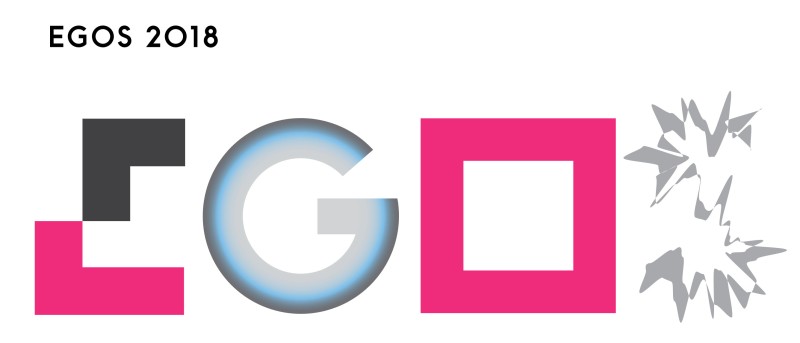Sub-theme 09: [SWG] Institutions, Innovation, Impact: Grand Challenges
Call for Papers
Societal reckonings of 21st century urgent problems (climate change adaptation, persistent poverty, massive
(forced) migration) are refocusing how social sciences in general, and management research, in particular explores innovations
and impact (Dorado & Ventresca, 2013). Scholars have described this class of problems with analytic terms such as ‘wicked’
problems’ (Rittel & Webber, 1973), ‘messes’ (Ackoff, 1981), and most recently ‘grand challenges’ (Ferraro et al., 2015).
What are the features of the large-scale innovations required to address these problems? And, what does ‘impact’ look like
when the goal is shattering the thick webs of interlinked structures, logics and attitudes that hamper the best-intentioned
efforts for tackling these problems (Khan et al., 2007)?
In organization studies, these questions invite
divergent images depending on whether the focus is on institutions and concerned with the receptivity of change (see articles
in Gehman et al., 2016), or on process and centered on the agentic, situated, and distributed approaches required (Ferraro
et al., 2015; Dorado & Ventresca, 2013). We invite colleagues to submit research papers that engage concepts and tools
from organization studies, innovation strategy, and institutional analysis.
We see at least four promising
pathways for contributions to this sub-theme:
- Papers that examine the notion of impact in a manner that is more expansive than direct, often uni-dimensional, operational outcomes. Such work would extend old usages of the word ‘institution’ (Khan et al., 2007) and engage broad concerns with culture, rationality, social organization and political economy (Weber, 1978). Another source of inspiration would be research on institutional imprinting (Marquis & Tilcsik, 2013) and institutional legacies (Greve & Rao, 2014; Schneiberg, 2007). They also may consider the conceptions of innovation brought forward by economic historians and innovation economists (Geroski, 2003; Hughes, 1993; Lerner, 2012) and recent work with a focus governance and infrastructure as institutional context (Dietz et al., 2013).
- Papers exploring indirect, emergent, or otherwise non-deliberate innovations fueled to have impact by factors such as the absorptive capacity of activity fields (Ansari et al., 2013), the layering of efforts (Granqvis & Gustafsson, 2016) consequences at different time and space scales (Greve & Rao, 2014; Schneiberg, 2007), and the nature of fields as nested and co-evolving (Lewin & Volberda, 1999; Zietsma et al., 2016).
- Papers exploring impact in settings with particularly complex and/or underexplored institutional contexts (Mair et al., 2012). In considering non-Western settings, researchers have embraced concepts such as bottom of the pyramid, resilience, or institutional voids. We invite papers that take on the challenge of further unpacking these concepts (or introducing new ones).
- Method papers with a focus on grand challenges, including provocative research design (multi-level, comparative cases, longitudinal and distributed time frames) and all forms of data and analysis (Vakili & McGahan, 2016; Eisenhardt et al., 2016). The point of these methods papers would to be to advance our knowledge on the linkages between institutions, innovations and impacts.
For more information on the Standing Working Group (SWG) on “Institutions, Innovation,
Impact: How Institutional Theory Matters”, please click here.
References
- Ackoff, R.L. (1981): “On the use of models in corporate planning.” Strategic Management Journal, 2, 353–359.
- Dietz, T., Ostrom, E., and Stern, P.C. (2013). “The struggle to govern the commons.” Science, 302, 1907–1912.
- Dorado, S., & Ventresca, M.J. (2013): “Crescive entrepreneurship in complex social problems: Institutional conditions for entrepreneurial engagement.” Journal of Business Venturing, 28 (1), 69–82.
- Eisenhardt, K.M., Graebner, M.E., & Sonenshein, S. (2016): “Grand challenges and inductive methods: Rigor without rigor mortis.” Academy of Management Journal, 59, 1113–1123.
- Ferraro, F., Etzion, D., & Gehman, J. (2015): “Tackling grand challenges pragmatically: Robust action revisited.” Organization Studies, 36, 363–390.
- Garud, R., & Gehman, J. (2012): “Metatheoretical perspectives on sustainability journeys: Evolutionary, relational and durational.” Research Policy, 41 (6), 980–95.
- Geroski, P. (2003): The Evolution of New Markets. Oxford: Oxford University Press.
- Granqvist, N., & Gustafsson, R. (2016): “Temporal institutional work.” Academy of Management Journal, 59 (3), 1009–1035.
- Greve, H.R., & Rao, H. (2014): “History and the present: Institutional legacies in communities of organizations.” Research in Organizational Behavior, 34, 27–41.
- Hughes, T.P. (1993): Networks of Power: Electrification in Western Society, 1880–1930. Baltimore: John Hopkins University Press.
- Khan, F.R., Munir, K.A., & Willmott, H. (2007): “A dark side of institutional entrepreneurship: Soccer balls, child labour and postcolonial impoverishment.” Organization Studies, 28, 1055–1077.
- Lerner, J. (2012): The Architecture of Innovation: The Economics of Creative Organizations. Harvard Business Press.
- Lewin, A.Y., &
Volberda, H.W. (1999): “Prolegomena on coevolution: A framework for research on strategy and new organizational forms.” Organization
Science, 10, 519–534.
Lukes, S. (2004): Power: A Radical View (2nd edition). London: Palgrave MacMillan. - Lyneis, J., & Sterman, J. (2016): “How to save a leaky ship: Capability traps and the failure of win-win investments in sustainability and social responsibility.” Academy of Management Discoveries, 2, 7–32.
- Mair, J., Marti, I., & Ventresca, M.J. (2012): “Building inclusive markets in rural Bangladesh: How intermediaries work institutional voids.” Academy of Management Journal, 55, 819–850.
- Marquis, C., & Tilcisk, A. (2013): “Imprinting: Toward a multilevel theory.” Academy of Management Annals, 7, 193–243.
- Rittel, H.W., & Webber, M.M. (1973): “Dilemmas in a general theory of planning.” Policy Sciences, 4, 155–169.
- Schneiberg, M. (2007): “What’s on the path? Path dependence, organizational diversity and the problem of institutional change in the US economy, 1900–1950.” Socio-Economic Review, 5, 47–80.
- Vakili, K., & McGahan, A.M. (2016): “Healthcare’s grand challenge: Basic science on diseases that primarily afflict the poor.” Academy of Management Journal, 59 (6), 1917–1939.
- Weber, M. (1978): “Basic sociological terms, [action, organization]; domination and legitimacy, bureaucracy.” In: G. Rothm& C. (eds.): Economy and Society: An Outline of Interpretative Sociology. Berkeley: UC Press, 1–62, 941–955, 956–980.
- Zietsma, C., Groenewegen, P., Logue, D., & Hinings, C. (2016): “Field or fields? Building the scaffolding for cumulation of research on institutional fields.” Academy of Management Annals, October 2016.


